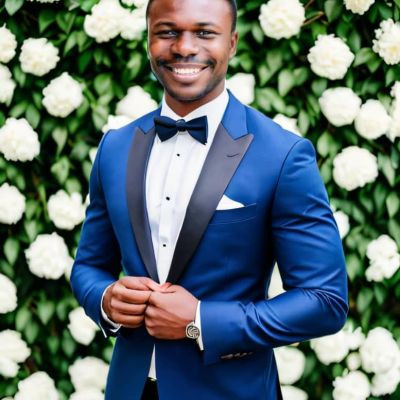African Writers of Today [Chinua Achebe]
For all of the information that comes to the United States from the African continent, so little is known about their writers. Who are they? What are their backgrounds? What are their reactions to the cultural revolution which surrounds them? For whom are they writing? Are they turning to the forms of the tribal oral traditions or are they rejecting them? How do the individual writers react to the philosophy of "Negritude?" What is the influence of current European literature and of the literature of the American Negro on their works? And what is the reciprocal influence of African novels, stories, plays and poems on the literature of these other cultures.
Series host Lewis Nkosi, Wole Soyinka, and the featured guest, Chinua Achebe. focus on the craft of Achebe himself, begins as Soyinka and Achebe discuss a carving of Ikenga, a symbol of manhood in Ibo society. Soyinka likens the spirit of Achebe's character Okongkwo from the novel Things Fall Apart to that represented by the carving. Achebe says he poured the essence of the aggressiveness and showy masculinity, traditionally so admired by the Ibo society into Okongkwo, and had his character's ultimate downfall represent the shortcoming of a culture which places a premium on brute intransigence. Is one critical assessment of Achebe's work - that in his books he deliberately attempts to avoid passing moral judgment - a true one?, ask Nkosi. Not at all, replies the novelist. Achebe says that while he presents a balanced picture of the Ibo society in Things Fall Apart, including its many admirable attributes (its music and art,"...the poetry of life, the simplicity... the communal way of sharing in happiness and in sorrow..."), and while he does not attempt to draw a moral lesson on every page, the total effect at the end of the book - the disintegration of his hero - illuminates a very strong moral position on the author's part.
After dismissing an evaluation of his work as being "unrelieved competence" rather than "genuine artistic inspiration" by pointing out that Things Fall Apart was written as a single draft with no polishing, Achebe goes on to discuss the influences which have shaped his artistic life. He speaks of the village, of the colorful tribal festivals, and of the way the old people talked. Coming from his own background, he points out, his fiction is the result of direct observation, not research.
He also refers to the negative influence of Joyce Cary's Mr. Johnson which angered him deeply when he was a student at the University College Ibadan. Achebe also briefly discusses: his recent trip to the United States, where he met with the Harlem Group of writers - among them Langston Hughes and John Killens - and with a number of white writers including playwright Arthur Miller; his strong opposition to "people preaching from a position of ignorance," a position which, he claims, is characteristic of most present day critics of African literature; and his new novel Arrow of God. In Arrow of God which concerns the relationship between an African god and a village priest, Achebe feels he is handling a group of more complex themes than he has in the past, and that he is progressing in the direction of a more highly developed treatment of character. The author sees the Nigerian novelist's position in his society as one of growing influence. As a literary form the novel is comparatively new in the country - only ten years old - but if book sales are any indication, Achebe feels the novel has caught on.























